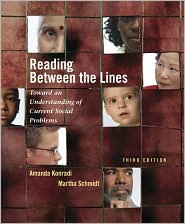Public Libraries in US and Canada are now a great attraction with foreign language learning tools
- The idea was up in 2006 in the minds of a knowledge curator, JABRA GHNEIM, and he said:
Public Libraries as a Resource for Foreign Language Learning
Public libraries in America are one of the best functioning and worth while public institutions. Making language resources available there is a wonderful idea. Language material is usually very expensive. Buying it through the public library system is a great idea. I have been learning Farsi for three years now using the resources of our great public library system here in the Salt lake City area. I also use it when I am designing curriculum or tests for other languages. Since we are now in a phase where we are trying to encourage the learning of critical foreign languages in this country I totally believe that public libraries should jump on board and use some of the available public funding to finance their purchases of foreign language learning material."
- Mango Language Learning @ Toronto Public Library: . A tutorial on how to use the Mango online languages system to help you learn languages such as French, Japanese, Greek and more
- Library Linguistics. By on August 4, 2014, Library Journal
"More and more, libraries strive not only to be spaces for researching subjects of interest to their patrons but to offer options that let users learn new skills, whether they’re physically in the library or not. One area in which mobile learning through the library is making headway is language learning. Many online lesson providers offer programs through libraries that patrons can use in the building, at home, or even while waiting in line for a cup of coffee.In our first language learning survey, which gathered information on language learning programs from 337 public libraries nationwide, LJ asked public librarians around the country what they’re doing to help patrons study a foreign tongue. From picking up enough French to order dinner on vacation to improving English-language skills to shore up job prospects, all sorts of language learners are learning in libraries to hone their abilities...
A sample question and response: Which languages are most popular with your users?
On the same shelf:
- The Status and Future of Canada's Libraries and Archives --- English language learning programs and books in dozens of other languages support newcomers.
- Expanding Their Vocabulary: Public Libraries Embrace New Language-Learning Programs -- The article discusses the growth of language-learning software, such as that designed by Mango Languages software company, in public libraries as a way to complement the public service mission of libraries. The article focuses on Illinois' Naperville Public Library (NPL) and Mount Prospect Public Library in particular. Topics include the NPL online platform for language learning according to librarian Monica Minnick, as well as comments by Steve Browne of Mount Prospect Library.
- Irving Public Library receives grant for new language learning program for adults
Labels: languages, Public libraries, Reading












